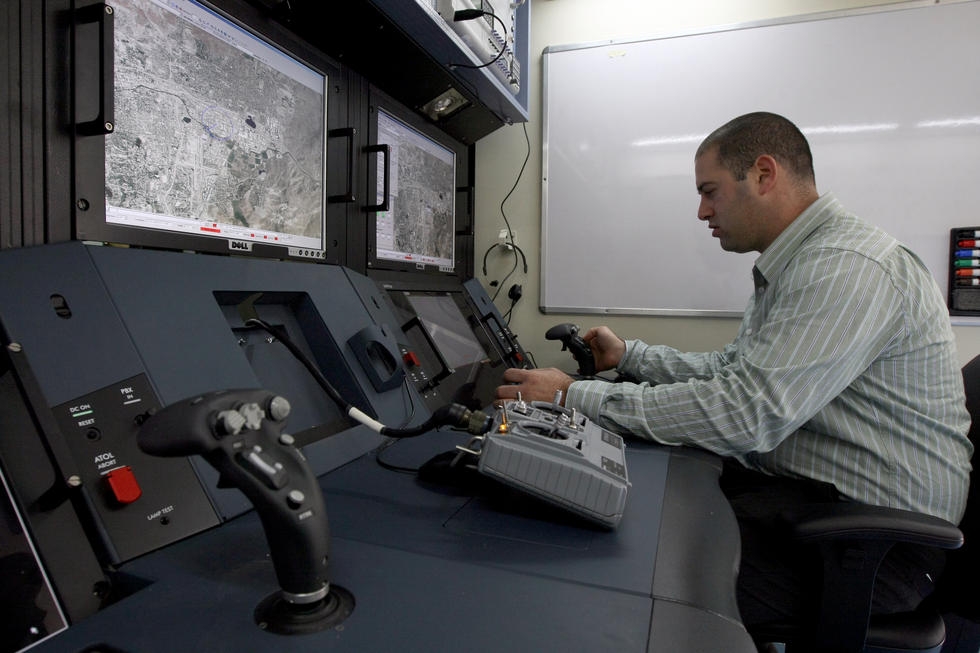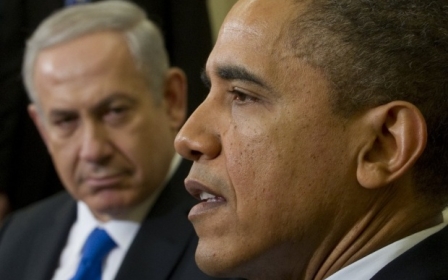‘Fortress Israel’: The ups and downs of arms sales and cyber surveillance

The military industry in Israel has had its ups and downs over the years. After the occupation of 1967 and the French arms embargo on Israel, massive state investments in arms production have turned the arms industry into one of Israel’s largest industrial sectors.
The Israeli Ministry of Defence buys many of these weapons, but exports were a crucial source of finance for the industry. The Israeli arms industry was not distinguished in its quality until the 1980s, but mostly by the willingness of Israeli arms traders to violate arms embargoes and sell to militias and to tyrannical regimes.
The end of the Cold War and the Oslo Peace Process were a difficult time for the Israeli arms industry, but recovery came quickly with the outbreak of the Second Intifada in 2000. Arms exports also increased in the arming rush after the September 11 attacks in 2001, and the “War on Terror” launched in the US by President Bush created a business opportunity for Israeli companies.
Tested on Palestinians
In the years that followed, the advantage of Israeli companies in the arms sector became apparent. Israeli firms could claim that their equipment had been tested against actual people because the newly developed military technologies were sold first to the Israeli military and police, and used in the Occupied Palestinian Territory (OPT). The use of the OPT as a laboratory for Israeli weapons was discussed by Naomi Klein, Neve Gordon, and in the movie “The Lab,” and it has not been denied by the Israeli authorities. Senior Israeli policymakers openly boast that military operations create business advantages to Israeli arms companies.
The peak of the Israeli arms exports seems to have arrived in 2009. In December 2008, Israel launched Operation Cast Lead. Nine Israeli soldiers died in the fighting, and 1,398 Palestinians. After the attack, the Israeli military held a special demonstration of the new technologies which were used in the attack and Israel’s arms sales skyrocketed in the years 2009-2010. Israel’s largest privately owned arms company Elbit Systems showed the highest profit on record in 2009.
Governments interested in controlling and containing large, restless, impoverished populations have become the biggest customers of Israeli arms: Brazil, India and Mexico are among the biggest customers. Arms sales to Africa continue to rise, even though the Israeli Ministry of Defence refuses to name specific countries in Africa to which it sells these arms, and refuses to address the evidence regarding arms sales to South Sudan.
The broken promise
It is not difficult to understand that armies and companies express interest in technology that has been tested in real conditions and would prefer it over products from arms companies of countries at peace. However, one must ask what exactly is this technology supposed to achieve, and in other words, has the experiment succeeded?
When Brigadier-General Gal Hirsch left the army in 2006, he started - like many other retired Israeli officers - his own arms company. Hirsch sold military equipment to the Georgian government, which did very little to slow down the advance of the Russian army in the war between Georgia and Russia in 2008. It was a reminder for potential customers of Israeli arms that the Israeli army has not engaged in conventional warfare since 1973, and that its technologies were perfected for use against Palestinian civilians, mostly unarmed. They are not technologies for winning wars, but for controlling populations.
Even the objective of controlling a civilian population eludes the Israeli military. The attack of 2008-2009 did not ensure Israeli dominance in Gaza. Another attack was launched in 2012, and another in 2014. The last one was launched a year ago on 8 July, 2014, and ended in bitter disappointment for the Israeli side. Despite the massive destruction and 2,104 Palestinian dead, the Israeli military could not force the Hamas government into signing a ceasefire and had to continue the fighting for 51 days, one of the longest wars in Israel’s history.
Advanced weaponry did not prevent the loss of 65 Israeli soldiers and four civilians who were killed in the fighting, and did not prevent the enormous damage to the Israeli economy, mainly to the tourism sector.
Indeed, in the arms fair following Protective Edge, both Britain and France cancelled their participation, and Israeli companies became concerned at a possible arms embargo, an indication that Israel’s brute force approach is losing popularity even among some of the world’s largest arms exporting countries.
In early 2015, the Israeli Ministry of Defence published data, according to which Israeli arms sales are in decline.
When the image of “fortress Israel” cracks, the potential customers of Israel will be forced to realise that advanced as it may be, Israel’s military technology is not a substitute for a political process. Even the most advanced weapons fail to intimidate the occupied Palestinian population into silence.
Cyber war
Prime Minister Netanyahu’s new favourite word is: “cyber”. He mentioned it at great frequency as the new direction of the Israeli technological advance. Although the word “cyber” does not necessarily have military connotations, in Israel it certainly has.
In 2012, Netanyahu set up a “national cyber bureau” to promote private security companies and encourage their involvement in cyber technology. The Israeli military is establishing a new “cyber command” which is due to become operational in 2017. It has been revealed that Israel’s famous “8200” intelligence unit is in fact a cyber-intelligence unit. A letter signed by 34 soldiers from the unit revealed that the unit uses technological means to collect private information on Palestinians in order to blackmail them and force them to collaborate with Israeli intelligence. Indeed, 2014 was the first year in which “cyber” exports, which reached $6 billion, exceeded Israel’s arms exports of $5.66 billion.
The massive investments in surveillance technology, hacking and cyber-security indicate a change of direction in the Israeli arms-industry philosophy. The arms sector has not been able to sell the tools to achieve military victory in armed conflict, so it seeks to specialise in selling tools for repression. The Occupied Palestinian Territory continues to be Israel’s testing lab, and so citizens of governments who purchase the new cyber products from Israeli companies should consider the possibility that their governments seek to use similar control mechanisms on them, which Israel is using on Palestinians.
- Shir Hever is a graduate student at the Free University of Berlin, and an economist with the Alternative Information Centre.
The views expressed in this article belong to the author and do not necessarily reflect the editorial policy of Middle East Eye.
Photo: An Elbit Systems technician pilots a Universal Ground Control Station (UGCS) to operate drones during a presentation to the media of products manufactured by the international defence electronics company in Haifa on 25 February, 2010 (AFP)
New MEE newsletter: Jerusalem Dispatch
Sign up to get the latest insights and analysis on Israel-Palestine, alongside Turkey Unpacked and other MEE newsletters
Middle East Eye delivers independent and unrivalled coverage and analysis of the Middle East, North Africa and beyond. To learn more about republishing this content and the associated fees, please fill out this form. More about MEE can be found here.





